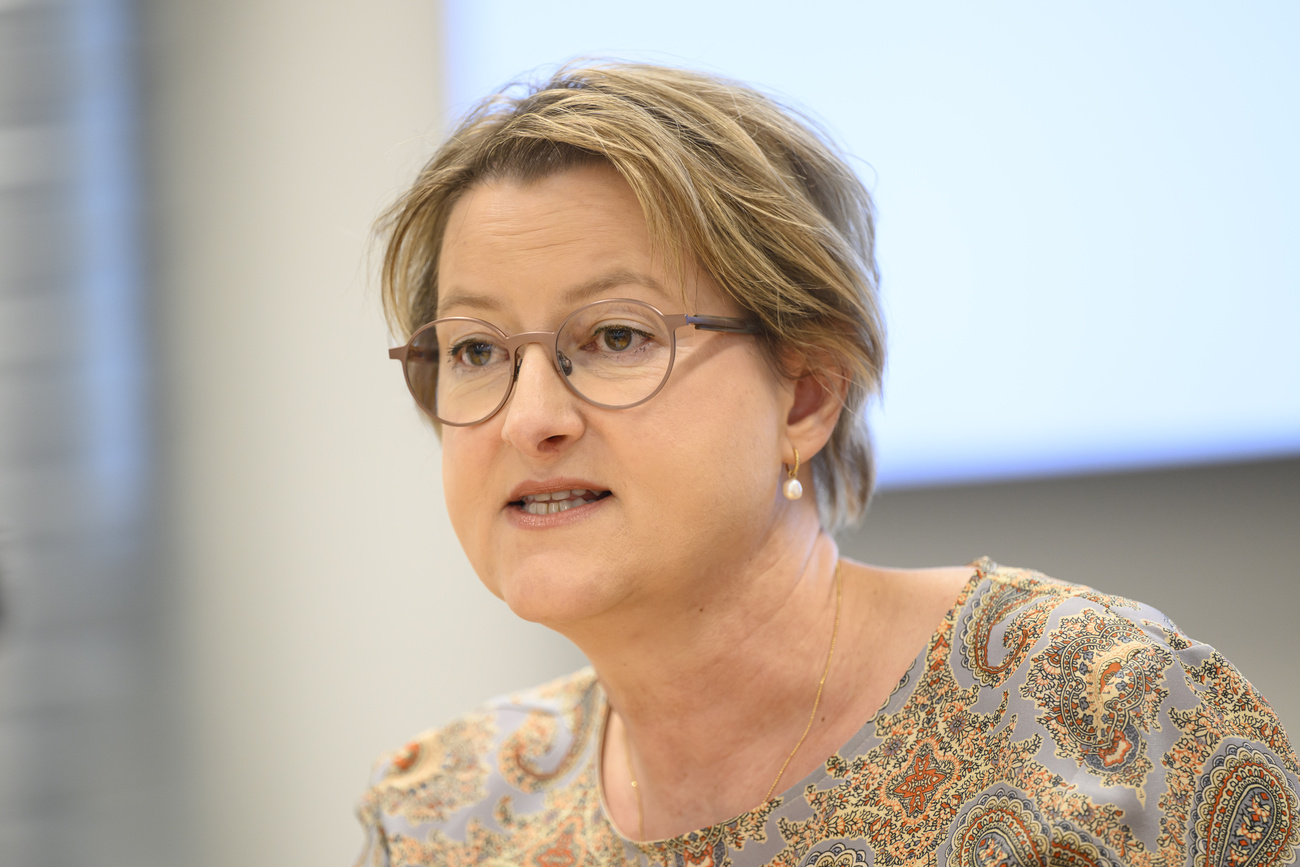
Swiss company launches rapid test to determine Covid-19 severity

Lausanne-based medical technology firm Abionic has created the first rapid blood test to help doctors decide whether Covid-19 patients require treatment in intensive care units.
According to a presentationExternal link by Abionic, the Covid-19 Severity Score test uses a small blood sample from the fingertip to determine how serious the disease is and how likely it is to worsen. Physicians receive the test results within five minutes and could then decide whether a patient should be admitted to intensive care, transferred to a general hospital ward or discharged from the hospital.
The test is intended to ease the burden on healthcare workers and intensive care units that are reaching capacity in some countries with high numbers of Covid-19 patients.
Abionic adapted the diagnostics process it developed for the detection of sepsis, a life-threatening complication of bacterial and viral infections, for use in Covid-19 in order to provide faster results. The Covid-19 severity test is based on the “sequential organ failure assessment score” (SOFA score), which is tracked by hospitals to determine a patient’s status in intensive care units based on organ functioning.
“Already in March of this year, we noticed in many different publications that one of the most frequent causes of death in Covid-19 patients was indeed bacterial sepsis,” Abionic CEO Nicolas Durand told Reuters news agency.
The test has been validated in clinical studies involving several hundred patients in various countries and hospitals and has received approval for use in Europe.
Founded in 2010 as a spin-off of the Swiss Federal Institute of Technology Lausanne (EPFL), Abionic distributes its tests and devices mainly in Europe. The company has received almost CHF37 million ($40.7 million) from investors in three rounds of financing.

In compliance with the JTI standards
More: SWI swissinfo.ch certified by the Journalism Trust Initiative






























You can find an overview of ongoing debates with our journalists here . Please join us!
If you want to start a conversation about a topic raised in this article or want to report factual errors, email us at english@swissinfo.ch.